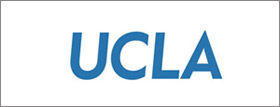 |
UCLA Los Angeles, CA
Phone: 310-206-3466
Email: FamilyUplift@mednet.ucla.edu
Link to our website
Click Here to download UCLA parent flyer
Click Here to download UCLA youth flyer |
CAPPS specializes in identifying and treating adolescents and young adults at high risk for developing psychotic disorders. CAPPS provides early intervention to vulnerable youth, including comprehensive diagnostic, psychosocial, and neuropsychological assessments. When adolescents or young adults are eligible for our research programs, we offer assessment and treatment services at CAPPS free of charge.
Max Gray CHAMP provides diagnostic evaluations, second opinion consultation, and short-term treatments (medication management and various forms of psychotherapy) for youth who have symptoms of significant and impairing mood disorders and their families. The Program’s focus is on pediatric bipolar disorder (extreme high and low moods) and major depression. |
 |
 |
YALE PRIME CLINIC New Haven, CT
Phone: 203-974-7052 (Dr.Barbara Walsh)
Email: barbara.walsh@yale.edu
Address:
Connecticut Mental Health Center B-38
34 Park Street New Haven, CT 06519
Link to our website |
| The PRIME Clinic at Yale University School of Medicine specializes in the early identification and intervention in individuals who are at risk for developing a serious mental illness. It is an integrated and comprehensive service that offers community education, clinical evaluation, outpatient treatment, treatment research participation, diagnostic clarification and consultation. |
 |
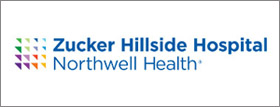 |
ZUCKER HILLSIDE HOSPITAL IN NEW YORK'S RECOGNITION AND PREVENTION PROGRAMGlen Oaks, NY
Phone: 718-470-8375
Email: DMcLaugh@northwell.edu
Link to our website |
| The Recognition and Prevention (RAP) Program in New York is a combined research and treatment program developed to help young people, ages 13 to 25, who are showing signing of risk for mental illness. The RAP Program provides assessment and treatment designed to off-set the progression of mental illness and improve functioning. Our research focuses on the biological mechanisms underlying illness which, in turn, informs new treatments. |
 |
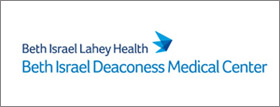 |
HARVARD CEDAR AT BETH ISRAEL DEACONESS MEDICAL CENTER Boston, MA
Phone: 617-754-1239
Email: ResponsetoRisk@bidmc.harvard.edu
Link to our website
Click Here to download BIDMC parent flyer
Click Here to download BIDMC youth flyer |
The CEDAR Clinic and Research Program is a center committed to advancing our understanding of and ability to help young people at risk for psychosis and their families. Our interdisciplinary team integrates innovative research, education, and specialized clinical care. The CEDAR Clinic provides services for youth ages 12-30 who are experiencing new or worsening symptoms that may be warning signs for psychosis. These can include:
- Difficulties thinking clearly or concentrating
- Suspiciousness or uneasiness with others
- Increased sensitivity to sights or sounds
- Withdrawing from friends and family
For more information, see our website (www.cedarclinic.org) and information regarding referrals to CEDAR http://cedarclinic.org/index.php/referrals
Please reach out to us if you are in Massachusetts and are interested in our services by contacting cedarclinic@brooklinecenter.org |
 |
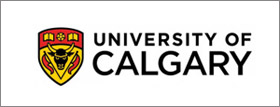 |
UNIVERSITY OF CALGARY Calgary, Canada
Phone: 403-210-8740
Email: napls@ucalgary.ca
Link to our website
Click Here to download University of Calgary flyer
|
| Dr. Addington leads the At-Risk for Mental Illness Research Program at the University of Calgary, in Alberta Canada. Working with young adults and adolescents as young as 13, their research focuses on determining the reasons why some individuals develop psychosis and developing psychosocial interventions to treat these at risk youth. To learn more about research opportunities, please visit: http://jeanaddington.com/ |
 |
 |
UCSD CARE San Diego, CA
Phone: 619-543-7745
CARE Research Program
Email: care@ucsd.edu
Link to our website
Click Here to download UCSD flyer |
The CARE Program at the University of California, San Diego has been involved in cutting-edge research addressing early identification and intervention strategies in psychosis for well over a decade. CARE's mission also includes providing education and outreach to the community about psychosis risk and early psychosis.
We strive to identify, assess and treat adolescents and young adults who are experiencing changes in their thoughts, behavior or emotions that might be associated with developing serious and/or disabling mental problems. A major aim of the CARE program is to identify psychosis early so that it is possible to intervene and prevent some of the effects of a first psychotic episode.
Recognizing the need for specialized treatment for psychosis spectrum illness, CARE expanded to also include clinical services as part of the UC San Diego Specialty Clinics. The CARE Early Psychosis Specialty Clinic strives to address the need of young adults and adolescents through treatments supported by research to help reduce or ameliorate the effects of emerging psychosis. We provide a range of services and will collaborate with patients and their family to develop a unique treatment plan that best addresses patient’s specific therapeutic needs.
Our clinic is staffed by psychiatrists, licensed psychologists and mental health specialists with expertise in the assessment, treatment, and rehabilitation of young people with psychotic illness. |
 |
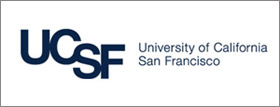 |
UCSF San Francisco, CA
Phone: 415-476-7278
Address: 401 Parnassus Ave., San Francisco, CA, 94143
Email: PATHintake@ucsf.edu
Link to our website
Click Here to download UCSF flyer |
| The Path Program, within the UCSF Department of Psychiatry and Behavioral Sciences and the Weill Institute for Neurosciences, is a strength-based comprehensive treatment and research program for young people and their families who are at risk of developing psychosis or are experiencing a first episode of psychosis. The Path Program focuses on empowering, educating, and fostering independence in the recovery process based on resiliency and social skill building in a collaborative treatment team setting. Specific services provided include comprehensive diagnostic evaluation consultation, evidence-based individual and group psychotherapy, pharmacologic management, and family support and education |
 |


